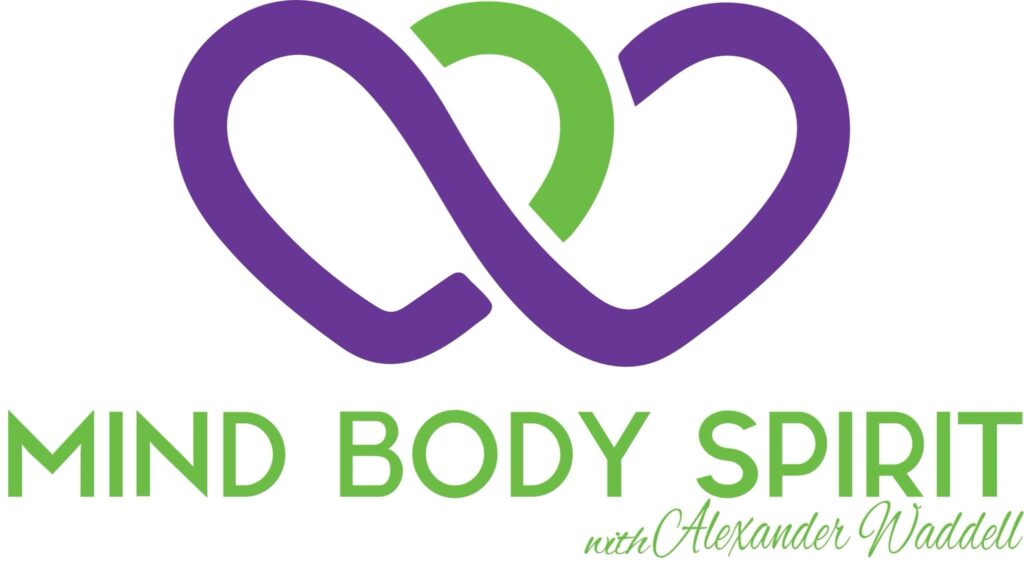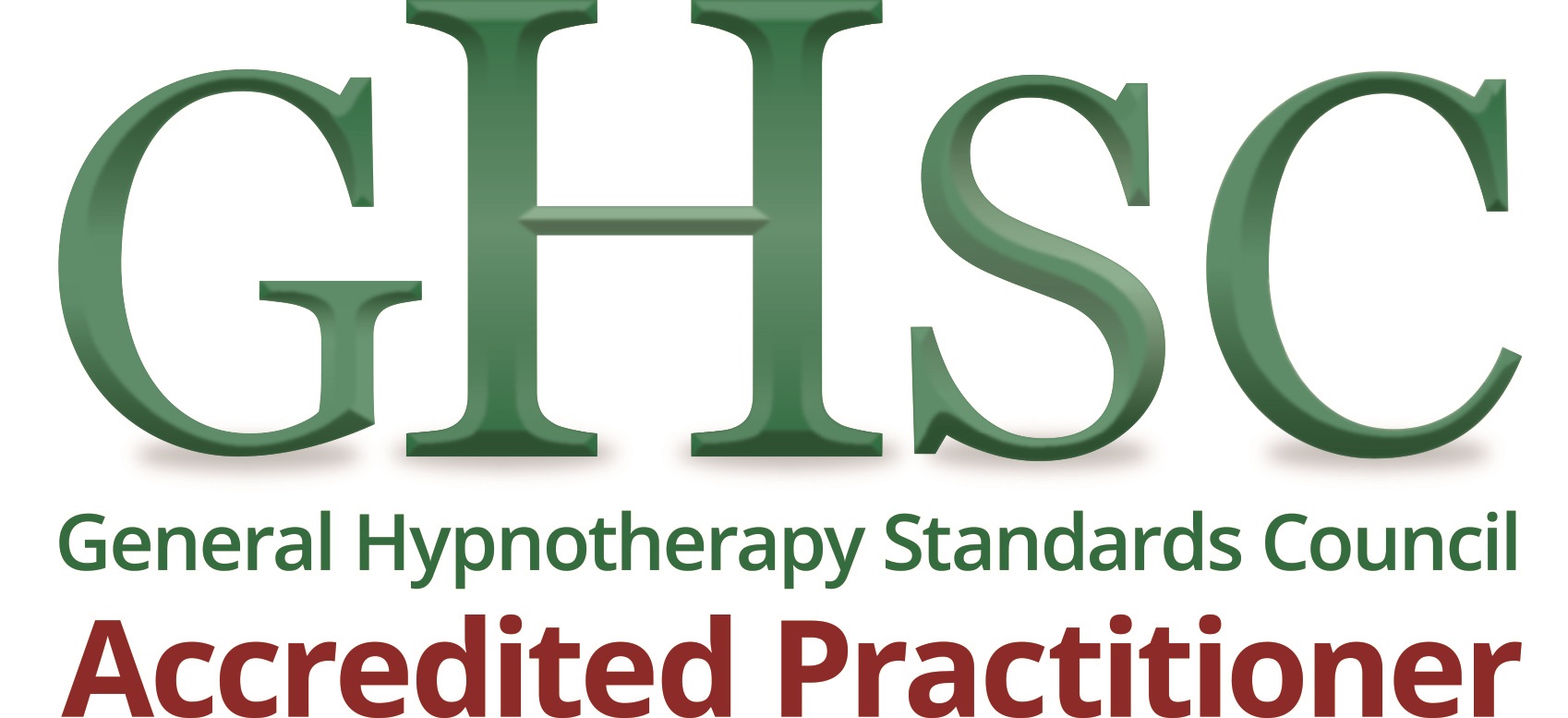



Frequently Asked Questions
What is Clinical Hypnotherapy?
Clinical hypnotherapy is a therapeutic approach that uses hypnosis to help individuals address various psychological and medical issues. Hypnosis is a state of focused attention and heightened suggestibility, often described as a trance-like state. In this state, people may be more open to suggestions and able to access deeper parts of their subconscious mind.
Here’s a quick overview of what clinical hypnotherapy involves:
- Induction: The therapist guides the person into a state of relaxation and focused attention, often using verbal suggestions and relaxation techniques.
- Therapeutic Work: Once the person is in this relaxed state, the therapist may use various techniques to address specific issues. This could involve suggesting new ways of thinking, helping the person explore memories or emotions, or reinforcing positive behaviours.
- Awakening: After the therapeutic work is done, the therapist guides the person back to a normal state of awareness.
Clinical hypnotherapy is used for a range of issues, including:
- Stress and Anxiety: Helping individuals manage and reduce stress and anxiety levels.
- Phobias and Fears: Assisting in overcoming irrational fears or phobias.
- Pain Management: Providing techniques for managing chronic pain or discomfort.
- Habit Control: Helping with quitting smoking, losing weight, or breaking other habits.
- Trauma and Emotional Issues: Exploring and resolving past trauma or emotional difficulties.
It’s important to note that while hypnotherapy can be effective for many people, it may not work for everyone and should be used as part of a comprehensive treatment plan. It’s best to seek a qualified and licensed hypnotherapist who has training in clinical applications of hypnosis.
Is Clinical Hypnotherapy Safe?
Clinical hypnotherapy is generally considered safe when conducted by a trained and qualified professional. However, like any therapeutic approach, its effectiveness and safety can depend on various factors, including the skill of the practitioner, the specific issues being addressed, and the individual’s overall health and mental state.
Here are some key points about the safety of clinical hypnotherapy:
- Qualified Practitioners: It’s important to work with a licensed and trained hypnotherapist. They should have proper credentials and training in clinical hypnotherapy and be experienced in addressing the specific issues you’re seeking help with.
- Informed Consent: A reputable hypnotherapist will explain the process, potential benefits, and any risks involved before starting treatment. You should always provide informed consent and have the opportunity to ask questions.
- Voluntary Process: Hypnosis is a cooperative process. You cannot be made to do something against your will or reveal information you don’t want to. The experience is typically very relaxed and within your control.
- Individual Differences: While most people respond well to hypnotherapy, it’s not suitable for everyone. Individuals with certain mental health conditions, such as severe psychosis or certain personality disorders, may not be appropriate candidates.
- No Harmful Side Effects: Clinical hypnotherapy itself is non-invasive and generally free from harmful side effects. However, some people might experience temporary discomfort or emotional release as they process issues.
- Complementary Use: Hypnotherapy is often used as a complementary treatment alongside other therapeutic approaches. It’s not a replacement for traditional medical or psychological treatments but can be an effective adjunct in a broader treatment plan.
If you’re considering clinical hypnotherapy, it’s a good idea to consult with a healthcare provider or mental health professional to ensure it aligns with your overall treatment goals and to address any specific concerns you might have.
If you’re considering clinical hypnotherapy, it’s a good idea to consult with a healthcare provider or mental health professional to ensure it aligns with your overall treatment goals and to address any specific concerns you might have.
How long does a session normally last?
The length of a clinical hypnotherapy session can vary depending on several factors, including the specific issues being addressed, the therapist’s approach, and the needs of the client. Generally, a typical session lasts between 60 and 90 minutes. Here’s a general breakdown:
- Initial Session: The first session might be a bit longer, often lasting around 60-90 minutes. This initial meeting is usually focused on discussing your concerns, explaining the hypnotherapy process, and setting goals for therapy. The actual hypnosis part might be somewhat shorter during this session.
- Subsequent Sessions: Follow-up sessions typically last about 45-60 minutes. These sessions focus more on the therapeutic work and less on the intake process.
- Session Frequency: The number of sessions required can vary. Some individuals may benefit from just a few sessions, while others might need more, depending on the complexity of the issues being addressed and the progress made.
The duration of the hypnotic state within the session can be anywhere from 15 to 45 minutes, depending on the goals of the session and how quickly the client enters and maintains the hypnotic state.
What age can you get hypnotised?
Hypnosis can be used with individuals of various ages, but the approach and techniques may differ based on the person’s age and developmental stage. Here’s a general overview:
- Children and Adolescents: Hypnosis can be effective for children and adolescents, often helping with issues like anxiety, sleep problems, phobias, and behavioural issues. Techniques for younger individuals are usually adapted to be more engaging and age appropriate. For example, therapists might use storytelling or playful imagery to facilitate hypnosis with children.
- Adults: Adults are often treated for a wide range of issues, including stress, anxiety, pain management, and habit control. Hypnosis for adults generally involves more direct communication and goal setting.
- Elderly: Hypnosis can also be beneficial for older adults, addressing issues such as chronic pain, stress, or even cognitive decline. The approach is adjusted to accommodate any physical or cognitive limitations.
In all cases, the suitability and safety of hypnotherapy depend on the individual’s overall health and psychological readiness. For children and adolescents, it’s essential that a parent or guardian is involved in the process and provides consent.
Regardless of age, working with a qualified and experienced hypnotherapist is crucial to ensure that the techniques used are appropriate for the individual’s developmental stage and specific needs. However personally I wouldn’t work with any children under the age of 7.
How many sessions would I need?
The number of clinical hypnotherapy sessions you might require can vary widely based on several factors:
- Nature and Complexity of the Issue: Simple issues like stress management or quitting smoking might be addressed in just a few sessions, while more complex problems like deep-seated trauma or chronic pain may require more sessions.
- Individual Response: People respond to hypnotherapy differently. Some might see significant improvements after a few sessions, while others may need more time to achieve their goals.
- Goals and Expectations: The specific goals you set with your hypnotherapist will influence the number of sessions needed. For example, if you have a clear and achievable goal, you might need fewer sessions compared to more open-ended or broad goals.
- Progress and Feedback: The frequency of sessions and overall duration of therapy can be adjusted based on your progress and feedback. Hypnotherapists often evaluate your progress regularly and adjust the treatment plan as needed.
- Therapist’s Approach: Different therapists may have varying approaches and recommendations. Some might suggest a structured number of sessions, while others might prefer a more flexible, needs-based approach.
On average, many people might see significant benefits within 4 to 6 sessions. However, for more entrenched issues, a longer duration might be necessary. It’s important to have a discussion with your hypnotherapist about your specific needs and expectations so you can get a clearer idea of what might be required
Am I in full control whilst being hypnotised?
Yes, you are generally in full control while hypnotized. Contrary to some misconceptions, hypnosis is not about losing control or being manipulated. Instead, it’s a state of focused attention and heightened suggestibility where you remain aware and in control.
Here are some key points about control during hypnosis:
- Awareness: Even though you are in a deeply relaxed state, you remain aware of your surroundings and can hear and respond to the therapist’s voice. You can also end the session or emerge from the hypnotic state whenever you choose.
- Voluntary Participation: Hypnosis is a cooperative process. You cannot be made to do something against your will or values. If a suggestion goes against your beliefs or comfort, you can simply ignore it or refuse to follow it.
- Focused Attention: While under hypnosis, you are often more focused and concentrated, which can make you more receptive to suggestions related to your goals. However, this focused state does not mean you are out of control.
- Safety and Boundaries: A trained hypnotherapist will ensure that the process is safe and respects your boundaries. The therapeutic suggestions are intended to align with your goals and values.
- Post-Hypnosis: After the session, you will return to your normal state of awareness and be able to recall what occurred during the session. Some people feel refreshed and relaxed, while others may feel like they were in a deep state of concentration.
In summary, hypnosis is about guiding you into a state where you can work more effectively with your subconscious mind while maintaining full control and awareness.
What is NLP
Neuro-Linguistic Programming (NLP) is a psychological approach that involves understanding and changing human behaviour patterns. It was developed in the 1970s by Richard Bandler and John Grinder, who sought to model and replicate successful therapeutic techniques. Here’s an overview of NLP:
Core Concepts
- Neuro: Refers to the neurological processes involved in how we experience the world, including sensory perception and mental processes.
- Linguistic: Focuses on how language influences and reflects our thoughts, behaviours, and interactions.
- Programming: Pertains to the idea that behaviours and thought patterns can be “programmed” or changed through specific techniques.
Key Components
- Modeling: NLP emphasizes learning from successful individuals and replicating their thought patterns and behaviours. This involves studying their strategies and adapting them to achieve similar results.
- Anchoring: This technique involves associating a specific mental or emotional state with a particular stimulus (e.g., a touch or a word). It’s used to trigger desired states or responses in various situations.
- Reframing: NLP encourages changing the way you perceive or interpret a situation to alter its meaning and impact. This can help shift negative perceptions to more positive or constructive ones.
- Swish Patterns: A technique used to replace unwanted behaviours or thoughts with more positive ones by mentally visualizing and “swishing” between old and new images or states.
- Meta-Model: This involves questioning and clarifying language to uncover underlying assumptions, beliefs, or thought patterns that may be limiting or problematic.
Applications
Business and Communication: NLP is used to enhance leadership skills, improve negotiation techniques, and foster better communication and relationships.
Personal Development: NLP techniques can be used for improving self-esteem, goal-setting, and personal effectiveness.
Therapy and Counselling: NLP is employed to address issues such as phobias, stress, and behaviour change.
What is life coaching?
Life coaching is a professional relationship in which a coach helps individuals achieve their personal and professional goals by providing guidance, support, and accountability. Unlike therapy, which often focuses on addressing psychological issues and past trauma, life coaching is more future-oriented and goal-driven. Here’s an overview of what life coaching involves:
Core Components
- Goal Setting: Life coaches work with clients to define clear, actionable goals. These goals can span various areas, such as career development, personal growth, relationships, health, or work-life balance.
- Action Plans: Coaches help clients develop practical strategies and action plans to achieve their goals. This often involves breaking down larger objectives into smaller, manageable steps.
- Accountability: One of the key roles of a life coach is to hold clients accountable for their progress. Regular check-ins and progress reviews help ensure that clients stay on track and make adjustments as needed.
- Motivation and Support: Coaches provide encouragement and support, helping clients overcome obstacles and maintain motivation. They often use techniques to boost confidence and self-efficacy.
- Self-Discovery: Life coaching often involves exploring personal values, strengths, and passions. Coaches help clients gain clarity about what truly matters to them and align their goals with their core values.
- Skill Development: Coaches may work with clients to develop skills such as time management, communication, and decision-making to help them achieve their goals more effectively.
Typical Process
- Initial Consultation: A preliminary session or consultation is often held to discuss the client’s needs, goals, and whether life coaching is a good fit.
- Coaching Agreement: If both parties decide to proceed, they establish a coaching agreement that outlines goals, expectations, and the coaching process.
- Regular Sessions: Coaching sessions are typically held on a weekly or bi-weekly basis, either in person, over the phone, or via video conference. Each session focuses on progress, challenges, and next steps.
- Evaluation and Adjustment: Coaches and clients periodically review progress and make adjustments to goals or strategies as needed.
Applications
- Career Development: Helping individuals advance in their careers, change careers, or improve job satisfaction.
- Personal Growth: Assisting with self-improvement, confidence building, and achieving a balanced life.
- Health and Wellness: Supporting goals related to fitness, nutrition, and overall well-being.
- Relationships: Improving interpersonal skills and fostering better relationships.
Choosing a Life Coach
When selecting a life coach, it’s important to consider their qualifications, experience, and approach. Many life coaches have certifications from reputable coaching organizations, but the most important factor is finding someone whose style and methodology resonate with you.
Life coaching can be highly beneficial for those seeking to make positive changes in their lives, gain clarity on their goals, and achieve personal or professional success.
What is Past Life Regression?
Past life regression is a therapeutic technique that involves guiding an individual to access and explore memories or experiences from what are believed to be their previous lives. This practice is often used within certain spiritual or metaphysical frameworks and is typically facilitated by a trained practitioner. Here’s a closer look at what past life regression entails:
Core Concepts
- Regression Techniques: The process usually involves entering a deeply relaxed or hypnotic state, often through guided imagery or hypnosis. The practitioner then helps the individual explore memories or experiences that are believed to originate from past lives.
- Exploration of Past Lives: During the session, individuals may describe scenes, people, and events from their supposed past lives. The aim is to uncover insights or patterns that could be influencing their current life.
- Integration: After exploring past life experiences, the practitioner may help the individual reflect on and integrate these experiences to gain personal insights or resolve issues.
Purposes and Uses
- Self-Understanding: Some people use past life regression to gain a deeper understanding of themselves, their behaviors, or their relationships. They may seek to uncover reasons for current-life issues or patterns that seem to have no clear origin.
- Healing and Resolution: Practitioners may use past life regression to help individuals resolve emotional or psychological issues believed to be linked to past-life experiences, such as phobias or unresolved traumas.
- Personal Growth: Exploring past lives is sometimes seen as a way to foster personal growth, spiritual development, or to understand one’s life purpose.
Controversy and Considerations
- Scientific Perspective: The concept of past lives and the validity of past life regression are not supported by empirical scientific evidence. The experiences reported during sessions are often interpreted as symbolic or the product of the individual’s imagination or subconscious mind.
- Therapeutic Value: Some people find past life regression to be a valuable tool for personal insight and emotional healing, while others view it as a form of fantasy or speculative exploration.
- Therapist Qualifications: It’s important to work with a trained and reputable practitioner if you choose to explore past life regression. They should be experienced in hypnosis and aware of the potential psychological implications of the process.
- Ethical Considerations: Practitioners should approach past life regression with sensitivity and ethical considerations, particularly when addressing emotional or psychological issues.
In summary, past life regression is a practice that some individuals find meaningful and helpful for personal exploration and healing. However, it is important to approach it with an open mind and to be aware of its speculative nature and the lack of scientific evidence supporting the concept of past lives.
Cancellation Policy
A 48-hour cancellation notice is a policy often implemented by service providers, including hypnotherapists, to manage appointment scheduling and minimize disruptions. Here’s a breakdown of what it typically means:
- Advance Notice: If you need to cancel or reschedule an appointment, you should provide at least 48 hours’ notice before the scheduled time. This gives us sufficient time to adjust our schedule and possibly offer the time slot to another client.
- Fees: Failure to cancel out with the 48 hours will result in loss of your session and payment. This fee compensates for the lost time and potential income from other clients who could have used the slot.
- Exceptions: In cases of emergencies the cancellation fee may be waivered, or your appointment rescheduled out with the 24-hour notice policy, however this is at my discretion. However, it’s a good idea to communicate openly with me if you have to cancel under these conditions.
- Respecting the Policy: Adhering to this policy helps maintain a good professional relationship and ensures that both you and I can manage time and appointments effectively.
If you’re unsure about the cancellation policy from Mind Body Spirit or any other service provider, it’s a good idea to ask about it upfront or check any information provided when you book the appointment.
Are you Insured?
Yes I am fully insured.



